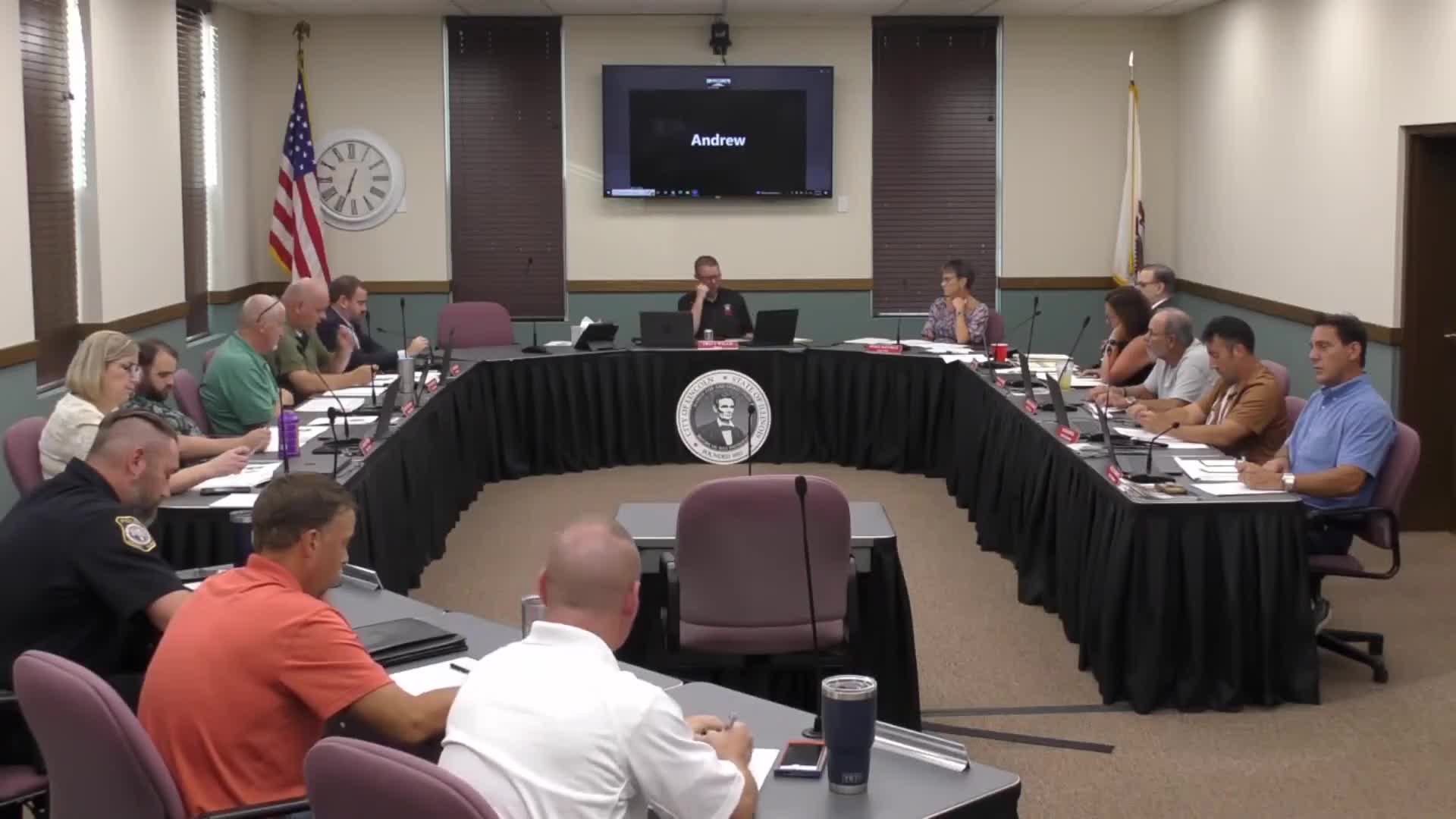Article not found
This article is no longer available. But don't worry—we've gathered other articles that discuss the same topic.
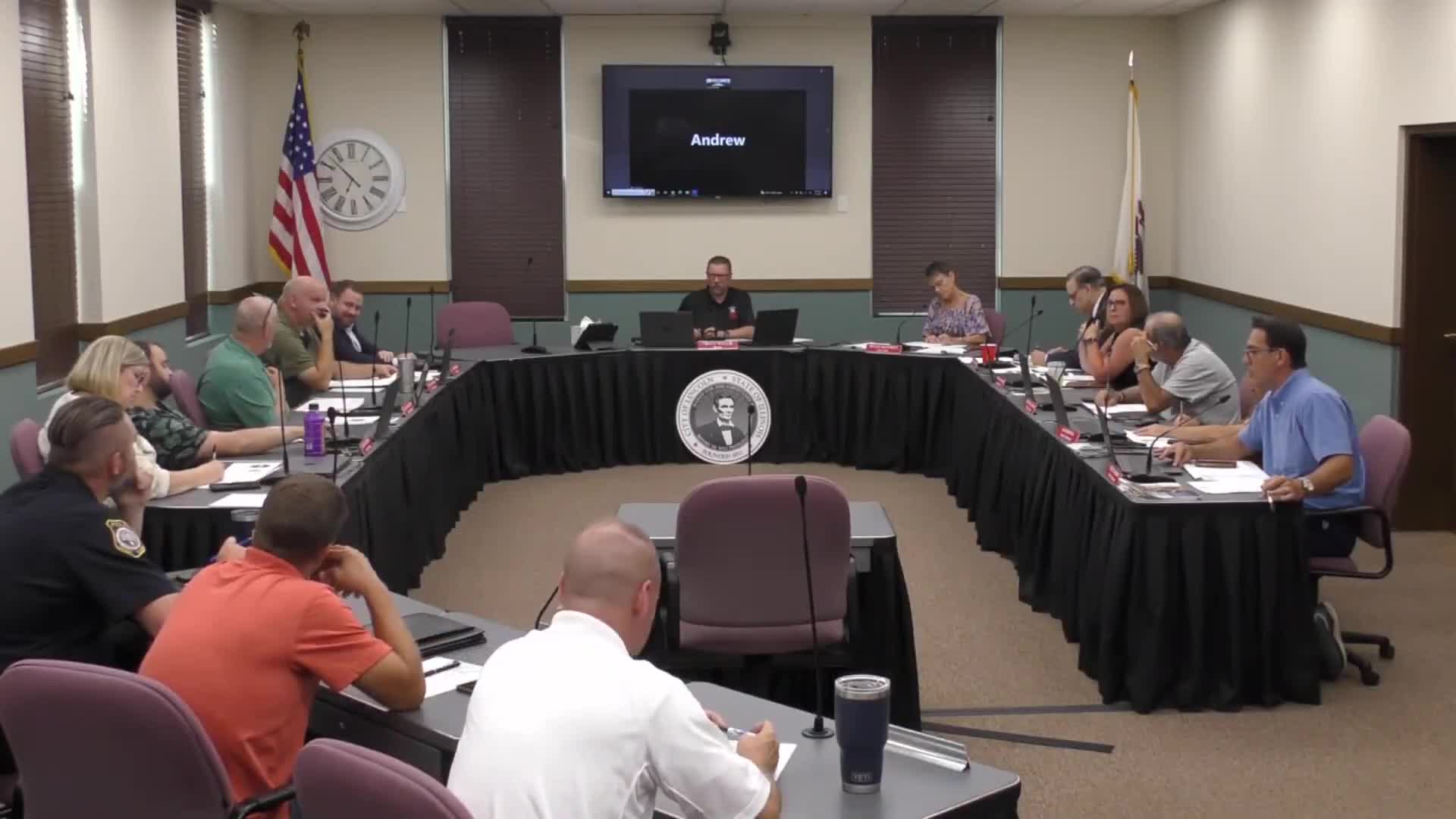
Council debates train ‘quiet zones’; staff and aldermen cite safety, liability and cost concerns
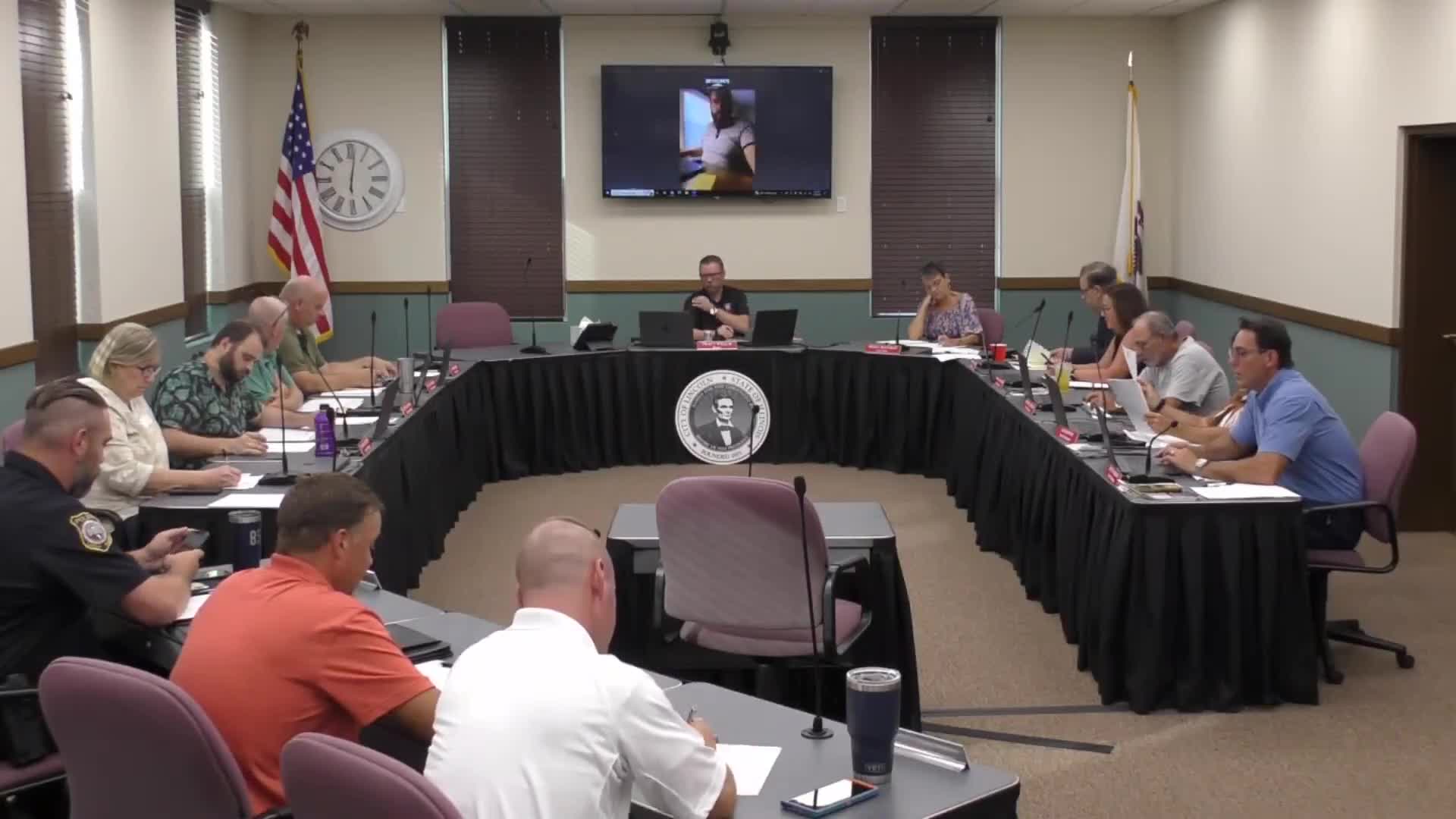
Council asked to approve $6,984.52 maintenance-and-repair reconciliation with Veolia
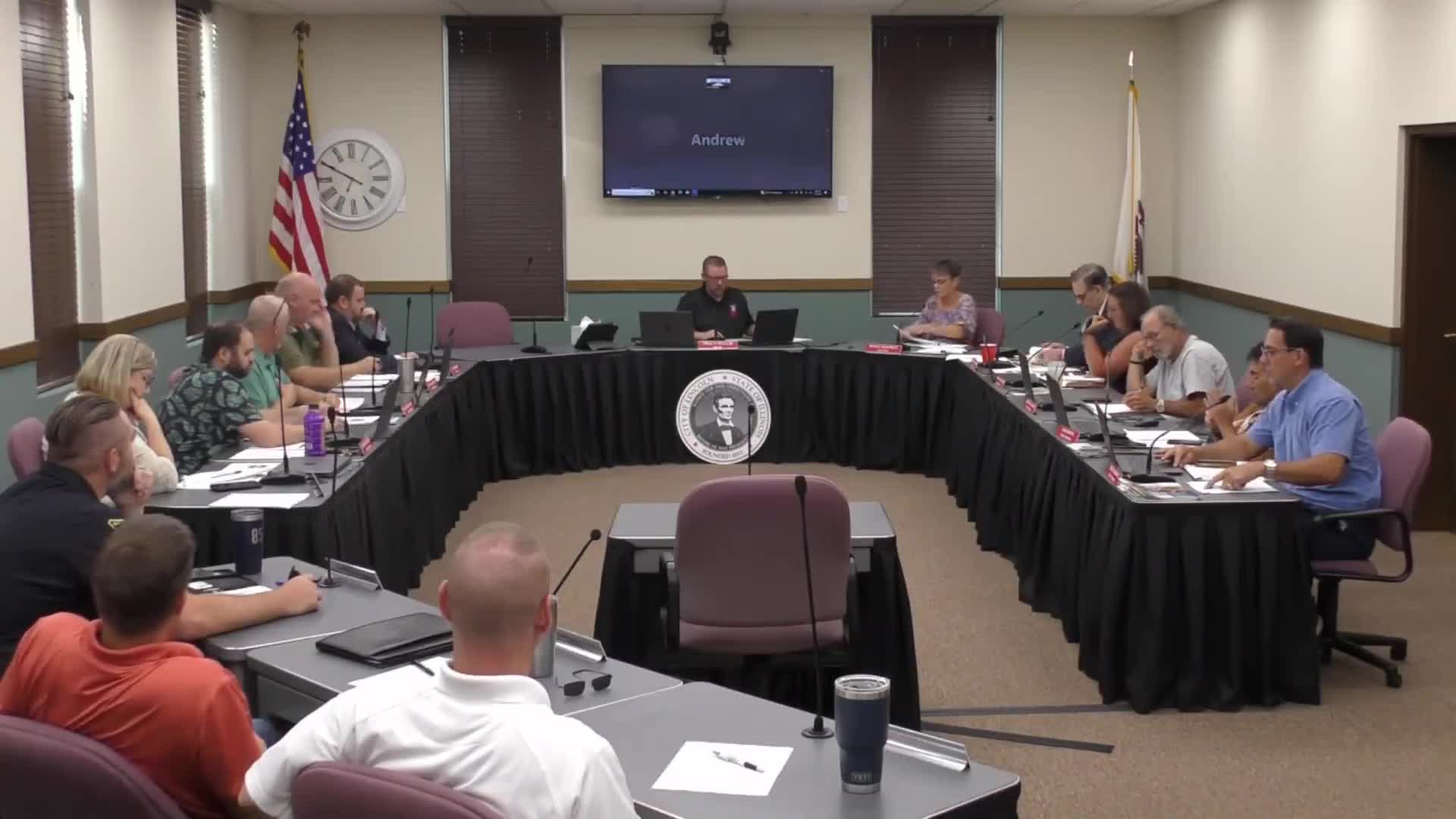
Council to consider $55,100 purchase to replace RAS variable-frequency drives at treatment plant
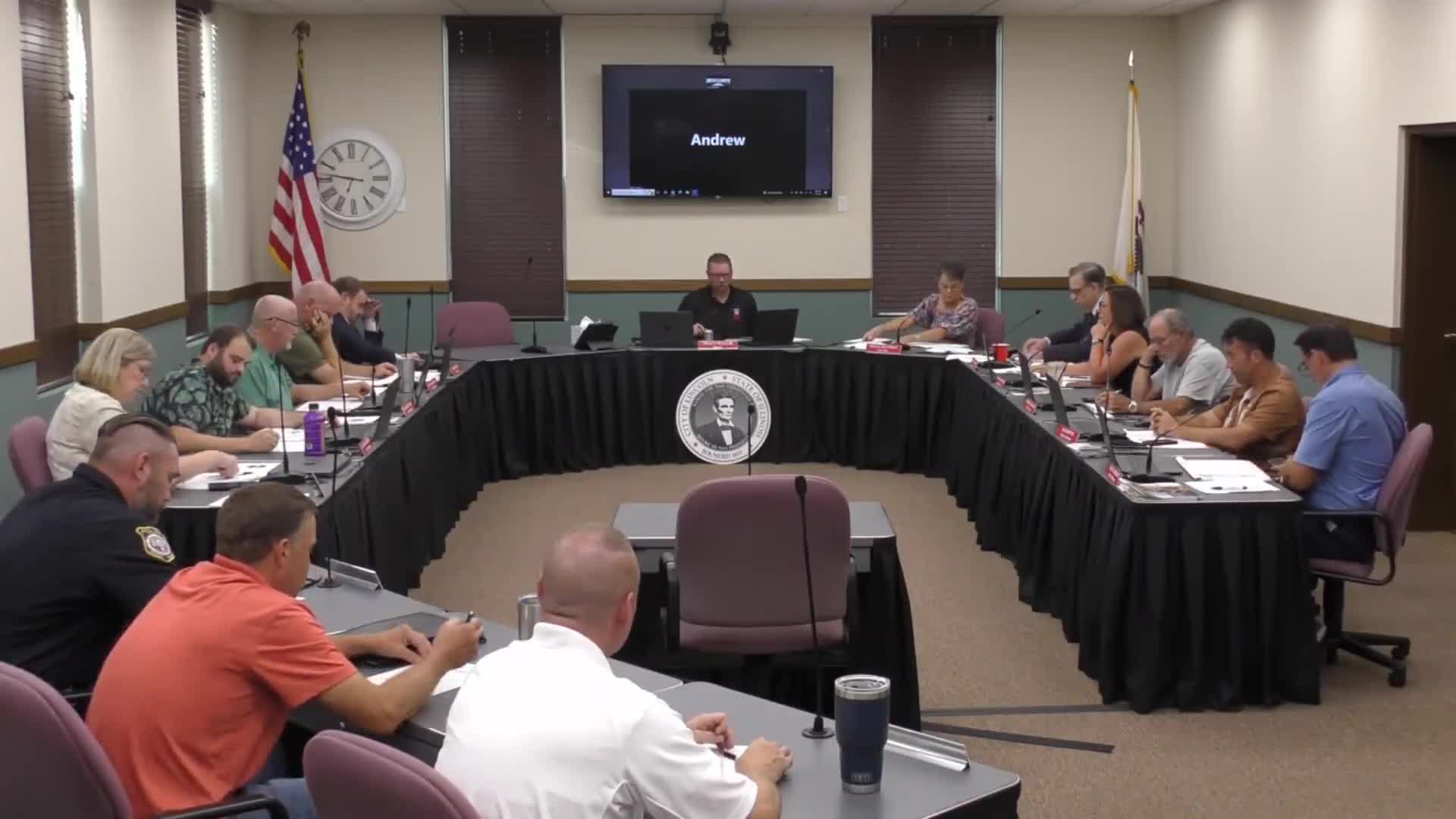
Treasurer presents FY25–26 appropriation; council to consider funding GoGov permitting app
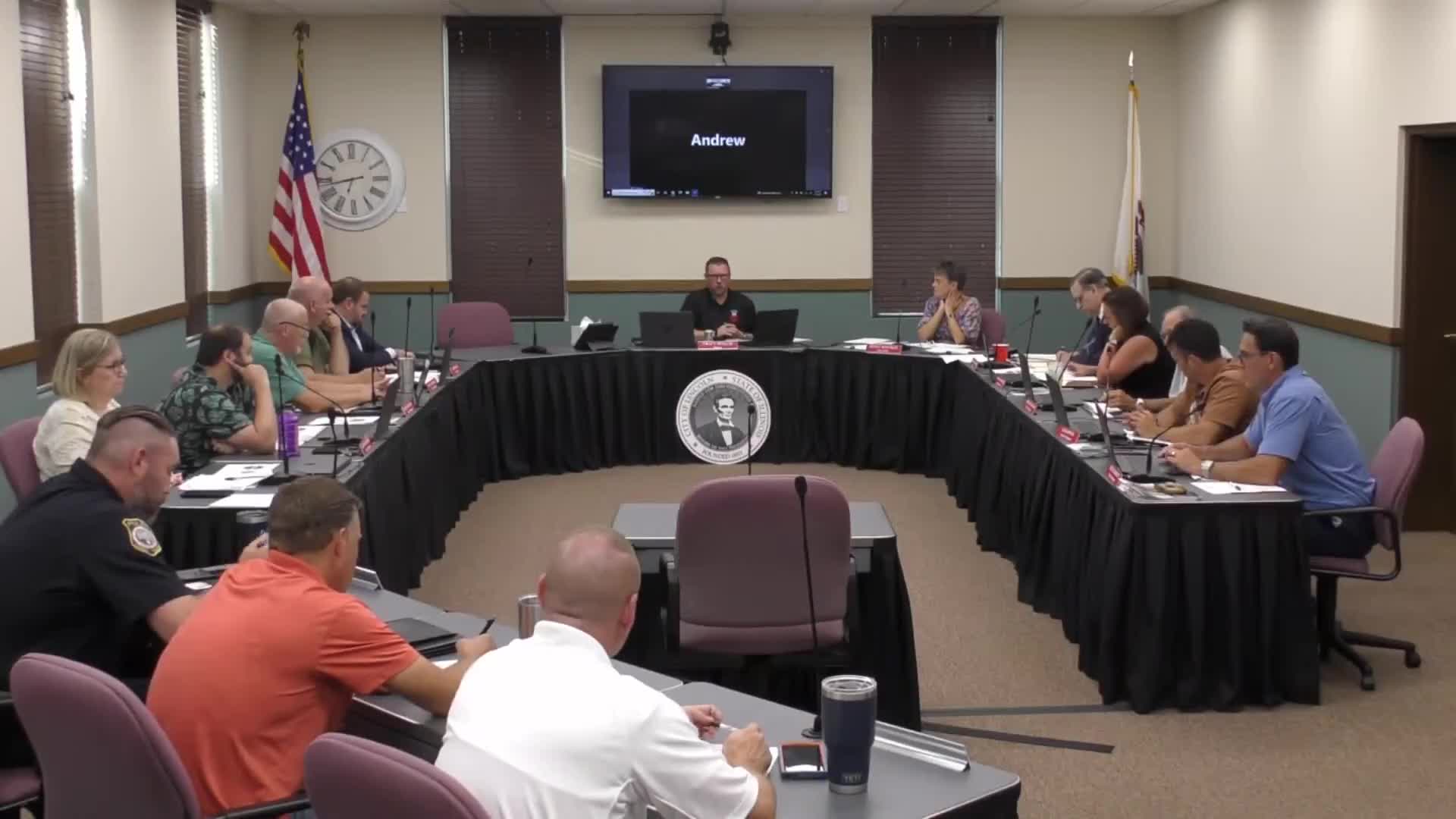
Council to consider MGT Impact Solutions contract to conduct compensation study, including benefits
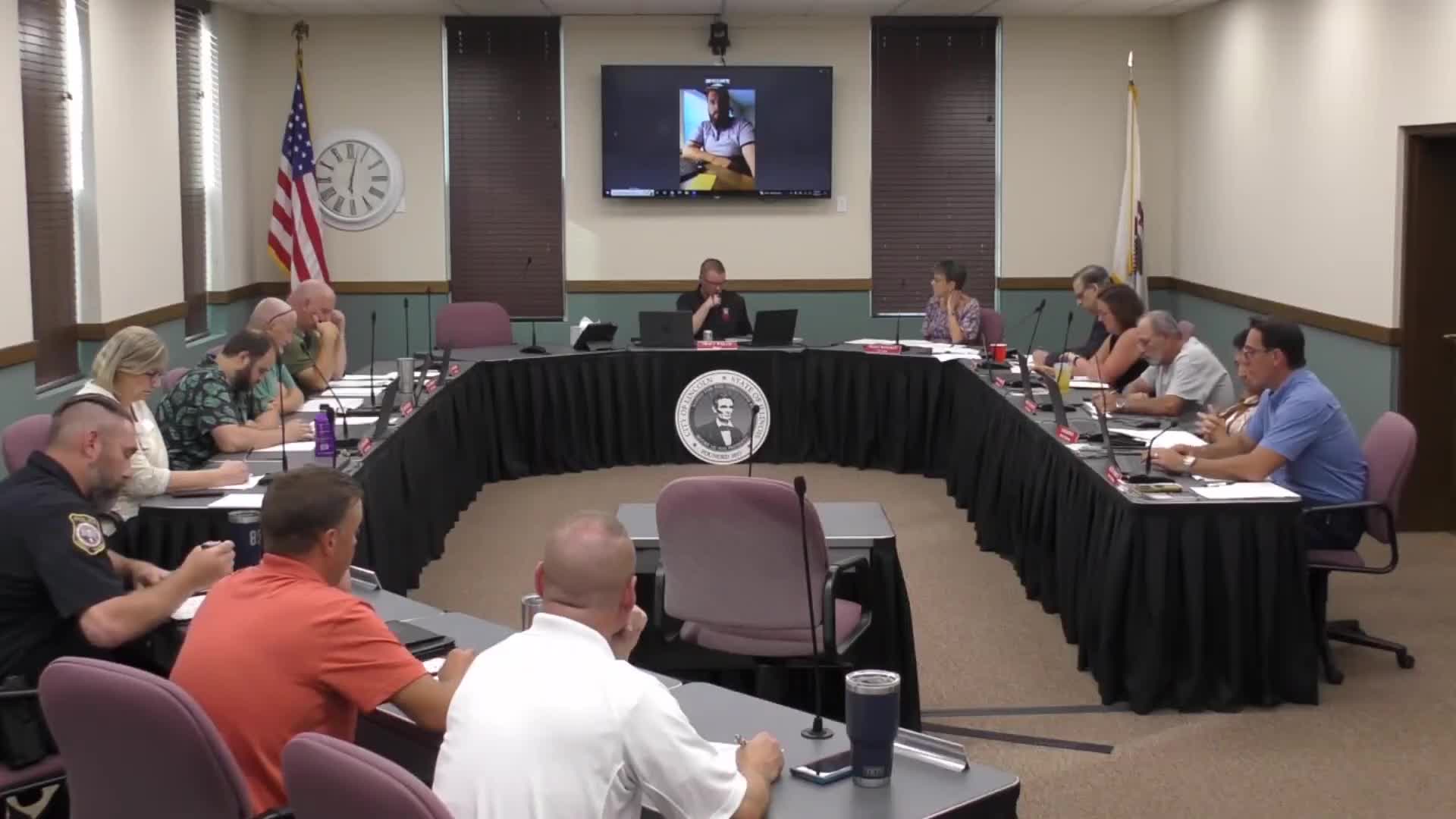
Council reviews tourism branding and places Route 66 model-train donation on agenda
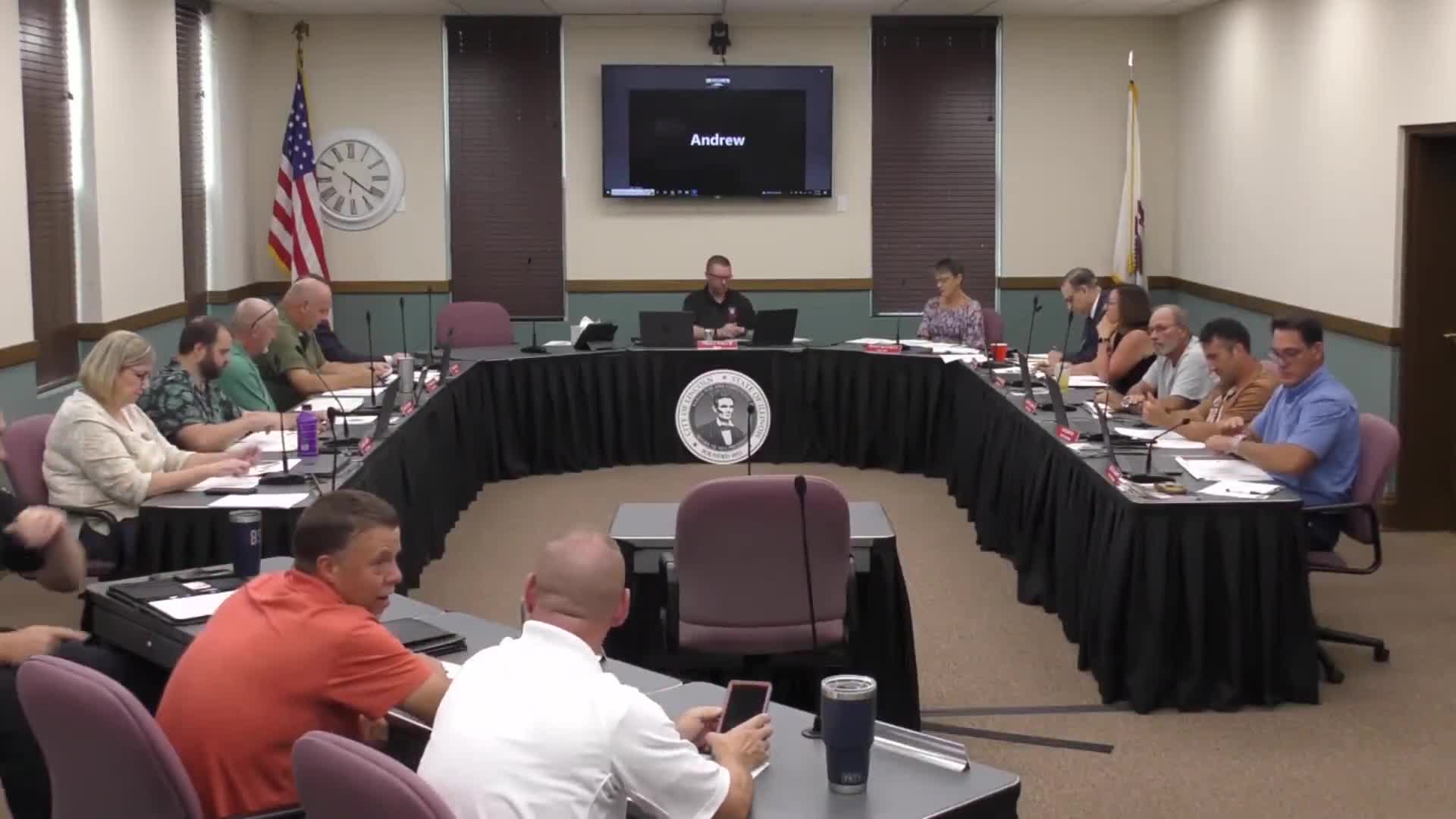
Council reviews 2025 MFT oil-and-chip targets, updates on Tremont and Fifth Street projects and bond funding
